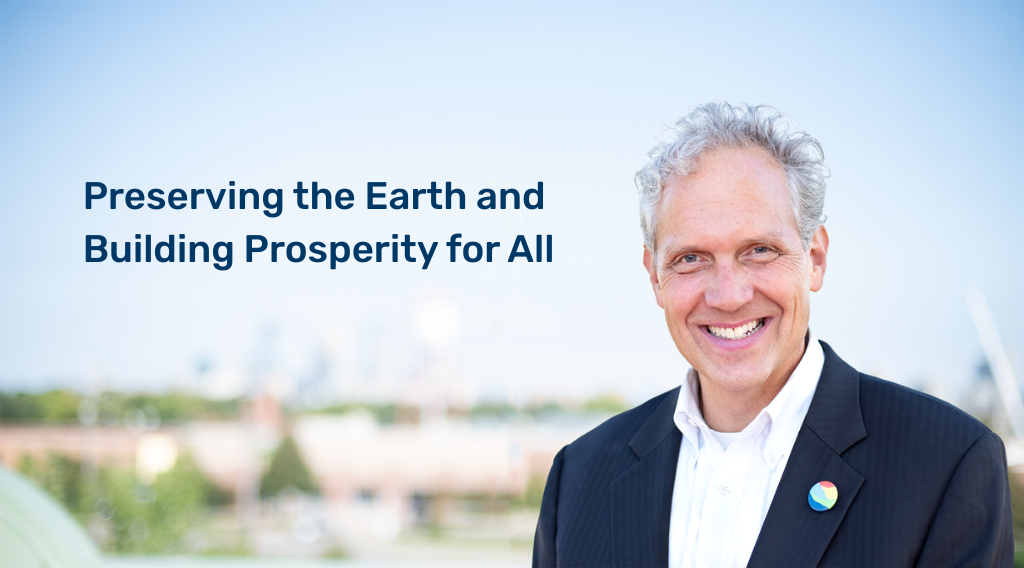
Nancy Pfund, Founder and Managing Partner of DBL Partners, answers GPI’s “Eight Questions on Energy,” sharing her insights on innovation, what she calls the “mobility trifecta,” and what makes her optimistic about the future of energy.
1. What is the most under-used word or term in energy?
“Data Transparency.” In order to realize the promise of a modernized grid, underlying grid data must be made transparent and accessible to a wider group of industry stakeholders. The importance of data transparency is just beginning to be understood so the term is not yet widely used.
2. What is the most over-used word or term in energy?
“It’s for rich people.” Innovation is a well-trodden path from expensive to less expensive to inexpensive. Thankfully, early adopters are usually not price sensitive, and can play a critical role in helping grow demand and drive down product costs. Nowhere is this clearer than in the Tesla Product migration from the first luxury roadster to the mass-market Model 3. The same is true for solar — over 60% of solar is being installed in median income zip codes from $40-90k.
3. What is on your energy bucket list? For example, an energy facility, research center, etc. that you’d like to visit.
I have visited many great places, including Ivanpah and the Gigafactory. I would like to visit Bonneville Power sites–wind, hydro, and others–to understand how to integrate renewables more effectively and avoid curtailment issues.
4. If you could have a dinner party with four people who have been thought leaders in energy, past or present, who would you invite?
Tesla, Edison, Musk, and Rive!
5. If you had a crystal ball, what do you think the energy system will look like in 25 years? Pick a level (in daily life, in cities, the electric or transportation system, etc.).
Transportation of the future will be governed by what I call “the mobility trifecta” of electrification, automation, and ride-sharing. On-demand access to fleets of green and safe autonomous vehicles will transform our relationship with commuting and the orientation of our cities. All of this will be supported by a green grid of renewables, storage, and real-time demand response.
6. If you could increase key decision-makers’ understanding of one energy-related technology, policy, or scientific topic, what would it be and why? What resource(s) would you point them to?
Energy storage. A clean energy future will be reliant on distributed storage solutions (both behind-the-meter and utility-scale deployments) for firming, shaping, and ramping the intermittent sources of renewable energy generation including wind and solar. The Energy Storage Association has extensive information on the technologies and policies that will be critical for hitting renewable energy goals in the future. Another resource is our recent paper on building a Clean Energy Nation that can be found here.
7. Can you name a book, article, talk, or other resource that changed your worldview on energy or climate issues? How did it change your worldview?
Many years ago, around 2010, I saw a Department of Energy graph that showed the evolution of U.S energy sources since the 1700’s, from wood and biomass to oil, gas, nuclear, and renewables today. It had a profound influence on me because it made me understand that energy generation is not a constant, but rather waxes and wanes.
8. What makes you most optimistic about the future of energy?
Despite the turbulence of the political climate, the prospects for clean energy remain incredibly bright. Renewable energy is overwhelmingly popular across the country, increasingly economically attractive to both residential and commercial and industrial (C&I) customers, and largely regulated by states, where we’ve seen significant progress across the political spectrum. There is a lot of momentum and I think it will continue here and abroad. In addition, the developing world offers a huge market for distributed clean energy with hugely positive social impact.
About Nancy Pfund: Nancy is Founder and Managing Partner of DBL Partners, a venture capital firm combining top-tier financial returns with meaningful social and environmental returns through “impact investing.” Nancy sponsors or is on the board of directors of SolarCity, Farmers Business Network, Advanced Microgrid Solutions, Off-Grid Electric, The Muse, and, prior to IPO, Tesla Motors and Pandora. She is on the Advisory Board of the Lawrence Berkeley National Laboratory and the UC Davis Center for Energy Efficiency, and is a Trustee of the National Geographic Society. She has been a Lecturer in Management at the Stanford Graduate School of Business and the Yale School of Management. Before DBL, Nancy was at JPMorgan, Hambrecht & Quist, Intel Corporation, the State of California, Stanford University and the Sierra Club. Nancy received her BA and MA in anthropology from Stanford University, and her MBA from the Yale School of Management.
Check out another Q&A in our “Eight on Energy” series with Ever-Green Energy CEO Ken Smith.


